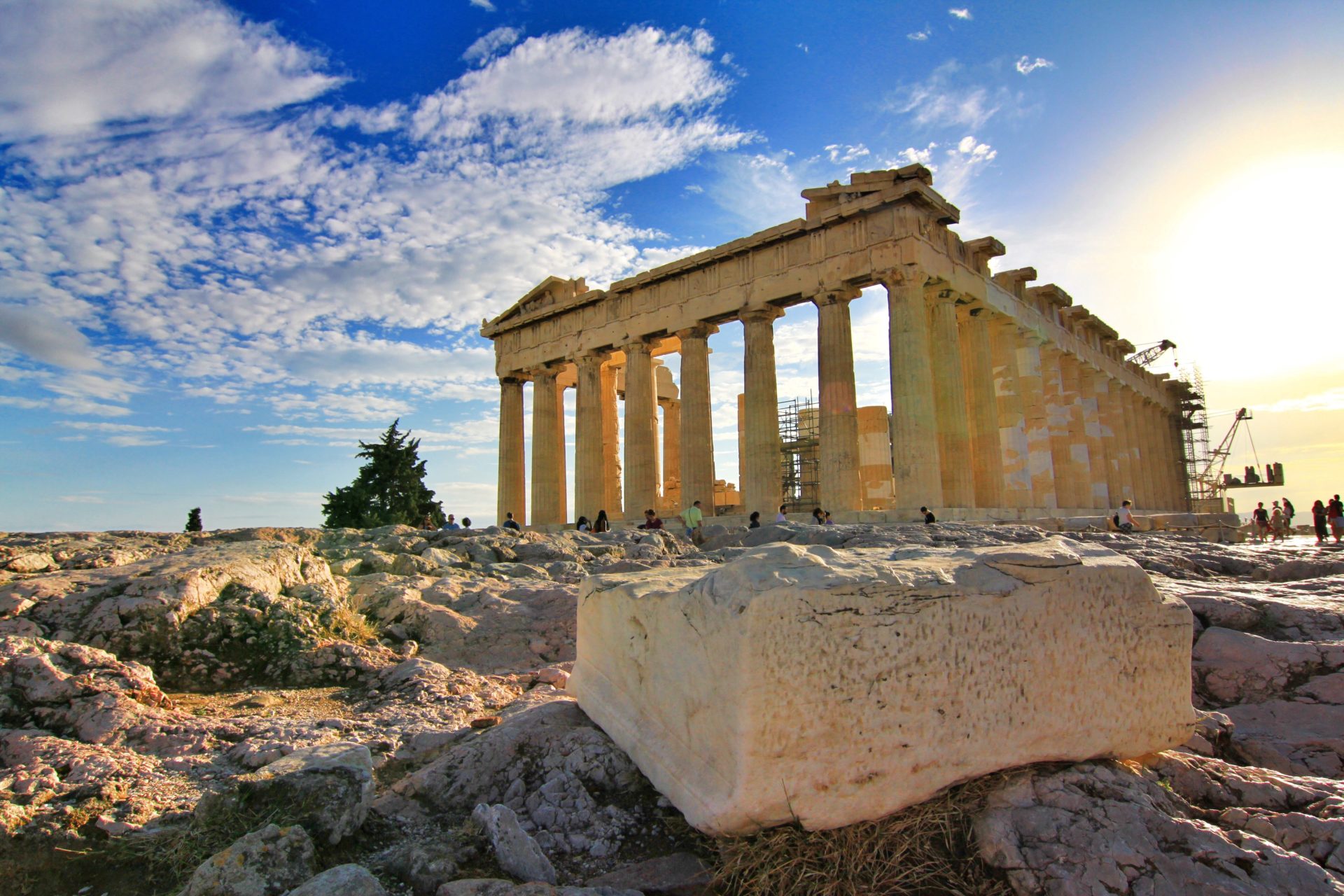Philosophy in times of crisis
In recent weeks we have been confronted with an absolutely exceptional situation. When the first cases of the new coronavirus, baptised SARS-CoV-2, were identified in China at the end of 2019, few expected that it would spread through the world so quickly. The Chinese authorities acted swiftly and imposed severe restrictions on people living in the city of Wuhan – which has a population greater than that of Portugal – and on the province of Hubei – with a population almost as large as Italy. Restrictions were also put in place in other parts of the country. As this was occurring, the Western world looked on, undaunted and passive, without seriously considering adopting extraordinary preventative measures such as impeding the circulation of travellers from that part of the world. After all, we have to keep the global economic machine running. But the crisis is showing that the global character of our time, the connectivity we cherish, is not limited to instant communication, online business or massive tourism driven by low cost airlines and local accommodation just a click away. Like the butterfly effect, the suggestive image used by Lorenz in propounding chaos theory, the new strain of coronavirus is thought to have begun with a person tasting a pangolin infected by bat droppings sold at a Wuhan market and then rapidly spread throughout the world.
As the virus advanced beyond China’s borders the governments most exposed to the contagion took up different stances. In South Korea and Japan there were appeals to the spirit of sacrifice of their populations, who for the most part obeyed and endeavoured to avoid the worst. To date, according to the World Health Organization [1], South Korea has recorded 9,137 cases, of which 126 have resulted in death. In Japan, the number of cases stands at 1,193, with the death toll at 43. The Chinese themselves, despite reaching 81,848 cases and 3,287 deaths, seem to have managed to stop the spread of the disease, reporting few or zero domestic cases for several days. In other parts of the world things went differently, as might be expected. It is not easy to change mentalities, especially when it comes to losing liberties.
As things stand right now Italians, Americans, Spaniards and Germans appear just behind the Chinese in terms of confirmed cases. A table in which no one is proud of occupying the top positions. Italy has so far had 69,176 cases and 6,820 deaths, more than double the number in China. The United States is in third place, having recorded 51,914 cases, which have already resulted in 673 deaths. Spain is in fourth place, with 39,673 cases and 2,696 deaths. Germany is in fifth, with 31,554 cases and 149 deaths. These four countries, taken together, have so far had more than twice as many cases as in China and more than three times as many deaths. The comparison is more shocking when one considers that the Chinese population is about 1.4 billion, compared to a total of 515 million in Italy, the US, Spain, and Germany. Globally – and the numbers climb with each passing day – there are already over 414,000 infections and more than 18,000 people have lost their lives.

The recognition that this was a pandemic necessarily required exceptional political measures. Although some have been slow to react, governments have faced up to this silent enemy as if it were a war. Declarations of states of emergency, with the inevitable suspensions of rights and freedoms we are used to, have been put into place in many democracies for the first time. Commercial and industrial activities considered non-essential have been stopped. Schools and universities have been closed, and face-to-face teaching has been replaced by virtual classes and other forms of distance learning. Millions of people have been placed in social isolation. If these measures are already serious in the immediate future, the seriousness of government resolutions becomes even greater when one realises – and one does not have to be a finance wizard to comprehend this – the economic impact they will have. Such decisions were not taken lightly. Few political times have been as bad to govern as the one we are in. When the health storm passes and the economic dust settles, voters will remember above all who launched them into a crisis that will certainly be more violent than that of 2008.
In addition to exceptional political measures, this pandemic has also required the joint efforts of various people in the social sphere, namely that each one should continue their work in such adverse circumstances, supporting the others. Doctors and other health professionals have been asked to fight the disease on the front line. But their effort would be in vain if the production and transport of basic necessities, as well as their trade, did not continue, or if there was no one who ensured the collection of domestic waste, telecommunications, policing the streets, etc. etc. Today there are those who, from their homes, applaud doctors and nurses, but those who with tenacity and without all but the most basic protection continue their work in a supermarket or in a garbage truck also deserve such praise. We are all needed, that is the lesson.
I am not a politician, or an ambulance driver, doctor, health technician or nurse. Nor am I a baker, businessman, butcher, driver or fisherman. I don’t collect rubbish, work in telecommunications, or in the security forces. I am a professor of philosophy at a university. Since its closure, I have been teaching my classes virtually and maintaining my usual research activity. A philosopher does not need much to do what he does, which is to observe what is going on around him, reflect on it and write. I am convinced that the pandemic could allow us to think about a more sustainable society and provide us with an opportunity to reassess many of our practices. This is what, in my opinion, should be expected of philosophy in times of crisis: a constructive contribution, which can help us all to have a better life. If philosophers do not put their thinking at the service of society, in line with the challenges of the moment, it will serve only to please themselves and the restricted circles surrounding them.
But this is not the way all philosophers think about philosophy’s role. In a series of texts published on the website of the publisher Quodlibet, the Italian philosopher Giorgio Agamben interprets what is happening in a very idiosyncratic manner. His first text concerning the spread of coronavirus was entitled “The invention of an epidemic” (L’invenzione di un’epidemia) and dates from 26th February 2020 [2]. On that day, according to the WHO [3], there were already 322 identified cases and 11 deaths in Italy, in addition to 78,191 cases in China, with 2,718 associated deaths. However, this world-famous thinker had no shame in devaluing the situation, speaking of a “supposed epidemic” and accusing the media and the Italian government of “spreading a climate of panic, causing a real state of exception”, something that results in a “real militarisation”, which Agamben envisioned would soon encompass the entire country. According to him, worse than the attempt made by the state to remove citizen’s rights and freedoms was the fact that nowadays “the limitation of freedom imposed by governments is accepted in the name of a desire for security”. You might think, “it was February 26th and there were not that many cases or deaths, and so maybe Agamben wasn’t seeing how serious the problem was and it really makes sense, in the context of contemporary Italian and European politics, to be alert for any authoritarianism”. Indeed, even with Matteo Salvini out of the government, some caution is needed.
However, let us consider the second text that Agamben published on this topic, entitled “Contagion” (Contagio), on 11th March 2020 [4]. On this day, the WHO recorded [5], in addition to 80,955 cases and 3,162 deaths in China, the following figures from Italy: 10,149 cases and 631 deaths. It is no small thing, let’s face it. And what does this philosopher say to us? He draws our attention again to a “panic that they seek to spread by all means in Italy”, lamenting the distance that we must keep from other, including our family, as well as the closure of educational institutions and the adoption of virtual teaching, something, in his opinion, long sought by the politicians who govern us. In the same sort of way he raises the suspicion that the government’s determination that “we stop getting together and talking for political or cultural reasons” and limiting it to sending “digital messages”, is in line with a desire that our leaders have had to replace what is characteristic of human labour with the work of the machine. Is it credible to imagine that floating around in the head of Prime Minister Giuseppe Conte, grappling with absolute chaos in his health care system, was the idea that this was a good opportunity to prevent people like Agamben from meeting and talking about politics or culture? Is it imaginable that people from different political backgrounds such as Xi Jinping, Donald Trump, Angela Merkel, António Costa, Pedro Sánchez and Pablo Iglesias, have conjured up this cunning plan with Conte?
Let us look at the last text, entitled “Clarifications” (Chiarimenti), dated 17th March 2020 [6]. While China, according to WHO [7], recorded on that day 81,116 cases and 3,231 deaths, in Italy the numbers rose to 27,980 cases and 2,503 deaths. Just prior to the publication of Agamben’s last article, on 16th of March, Paolo Flores d’Arcais published an article in the magazine MicroMega with the title “Philosophy and virus: the delusions of Giorgio Agamben” (Philosophy and virus: le farneticazioni di Giorgio Agamben) [8], and so one could expect that these “Clarifications” would clear up any misunderstandings. However, in the article we are again confronted with the idea of a “wave of panic that paralyzed the country” and with criticism of his compatriots for being “willing to sacrifice practically everything, normal living conditions, social relations, work, even friendships, affections and religious and political convictions in the face of the danger of becoming ill”. Italians have forgotten their roots and have therefore given themselves up to “survival”. The greatest danger we face, according to Agamben, is not the virus but dehumanization and the possible loss of our “free society”. And Agamben concludes by repeating claims from “Contagion”: that it is possible that when all this is over, political leaders will try to keep educational institutions closed and that “we will only take classes online”; that “we once and for all stop getting together and talking for political or cultural reasons”, limiting our communication to “digital messages”; and that, when the right moment arises, what is specific to the human will be transferred to the machine.
It is very interesting that Agamben places so much emphasis on what he already believes to be a sign of dehumanized man, that acceptance of “a purely biological condition”, and that in his appeal to the affective side, which undoubtedly marks our nature, he does not have a single point to make about the thousands of lives that this virus has already taken away. It is very interesting that Agamben draws so much attention to the dehumanizing distancing from those close to us and that he does not have a single word for health professionals who, endangering their own lives, for hours on end struggle to save those who they may well not know at all. It is very interesting that Agamben is so concerned with the current restrictions on face-to-face classes and meetings of a political and cultural nature without, however, showing signs of understanding that, at this conjuncture, which can only be compared with the two great wars, what matters is that there is food in supermarkets, that there is water, electricity, telecommunications, that there is security, that there is garbage collection. What Western society does not need is philosophers who present themselves as enfants terribles, ready to question any order for the sake of a libertarian ideal that, if followed, would lead us to the civilizational abyss. That the threat of this abyss hangs over us is evident. But the answer to environmental, macroeconomic or epidemiological problems cannot come from a paranoid distrust of our governments. In times of crisis, philosophy, like any other human activity, must be at the service of the solution and cannot irresponsibly contribute to amplifying the problem.
This article was authored by Nuno Venturinha, Assistant Professor of Philosophy, Universidade Nova de Lisboa, Portugal
Translated by Robert Vinten from the Portuguese original
[2] https://www.quodlibet.it/giorgio-agamben-l-invenzione-di-un-epidemia
[4] https://www.quodlibet.it/giorgio-agamben-contagio
[6] https://www.quodlibet.it/giorgio-agamben-chiarimenti
[8] http://temi.repubblica.it/micromega-online/filosofia-e-virus-le-farneticazioni-di-giorgio-agamben/



